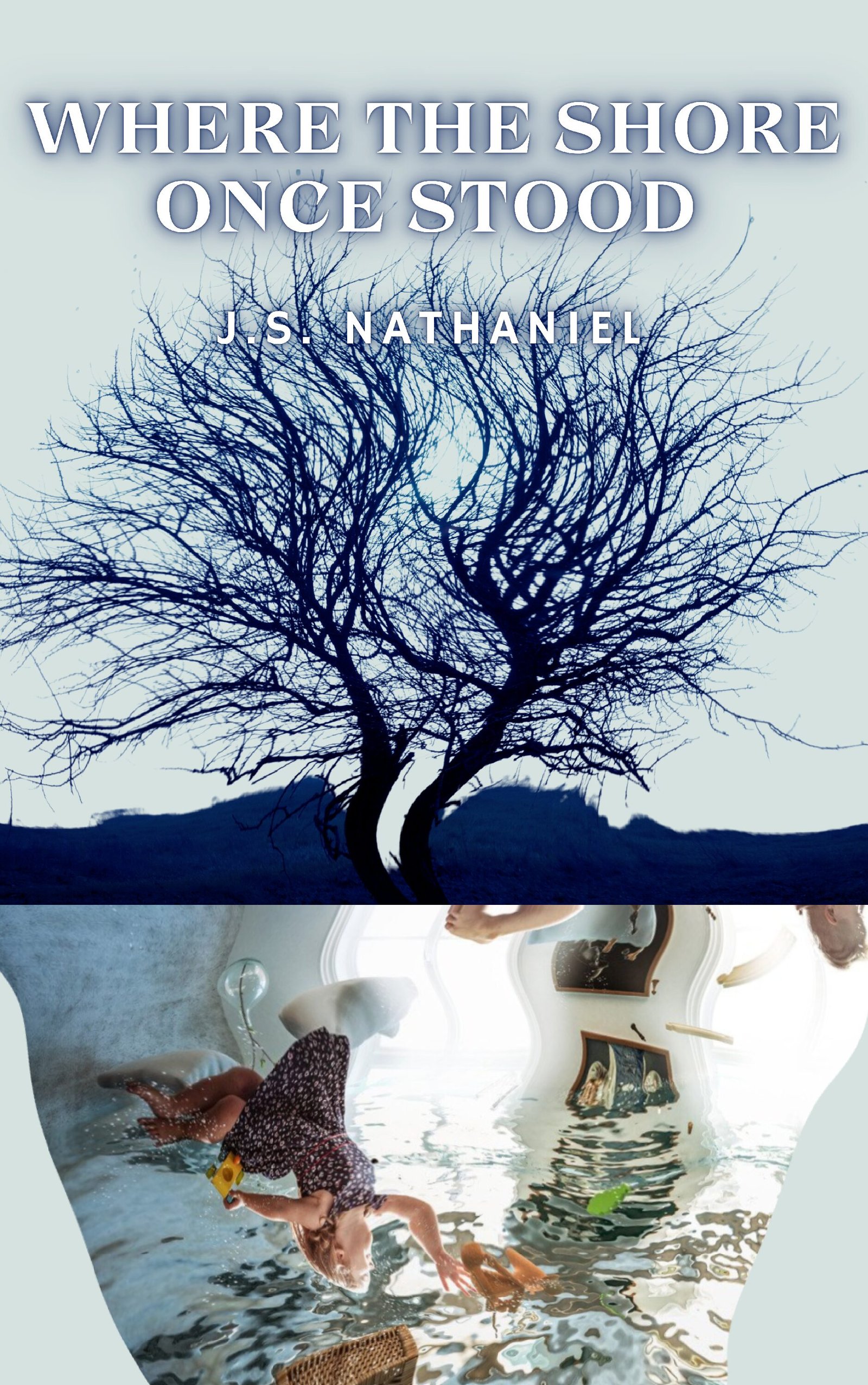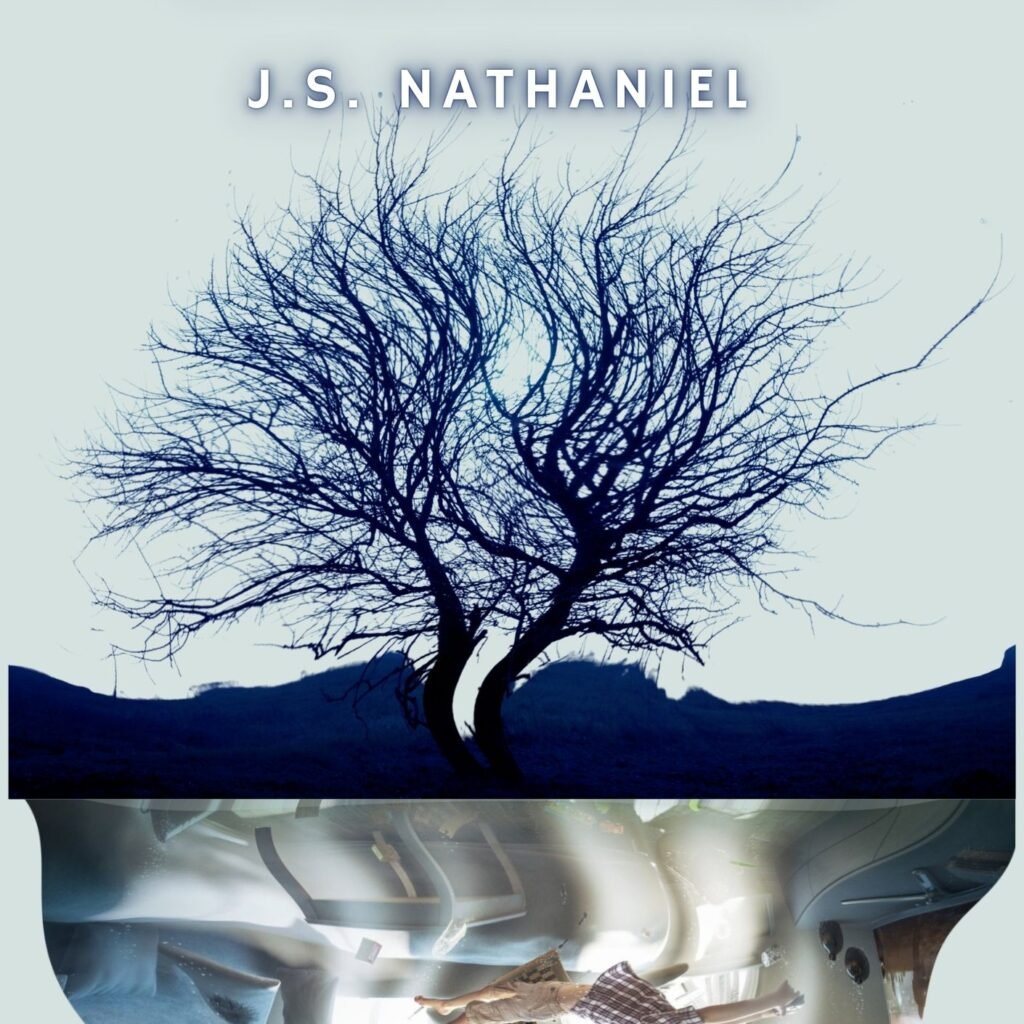
Every Sunday, step into the storm with the latest chapter of WHERE THE SHORE ONCE STOOD. Follow a Mexican American family as they wade through flooded fields and battered towns, chasing the scent of chili peppers and the promise of home. Rain lashes their backs. Rivers swallow roads. Along the way, they clash and connect with other survivors. Families who barter for shelter, communities who band together to rebuild from the mud. Through each trial, hope flickers and futures are forged, one determined step at a time.
Chapter 1: The day the Rain Came
Papi often spoke of the spiritual power of chili peppers, weaving stories of cultures across the land. He told us how the Aztecs revered peppers. Not just as food, but as symbols of tradition and resilience. For Papi, everything—big or small, alive or dead, had a purpose. Each thing had its own beginning and end, its own identity. That was his way of seeing the world.
“That’s why we must leave this place, little one,” he once said. “Home is where the chili pepper grows.”
At the time, none of us realized he’d never see that day. Yet perhaps, in his own way, he did. Maybe Papi foresaw his fate, just as he seemed to foresee everything else.
I remember laughing the first time I saw him stumble through the back door, his eyes wide and frantic, as if a tornado were about to tear through the house. Neither Papi nor I took much seriously, and Mother despised us for it. I always suspected she blamed Papi for this flaw more than she blamed me. Just one more thing added to the long list of grievances she held against him.
Even when he sat at the kitchen table, cracking open a cold beer with weathered, trembling hands, I thought nothing of it. He skipped the glass, didn’t bother with salt, just took a swig. His gaze darting past me as he called out for Mother.
“Maria!” he shouted, rolling the “r” in her name. “Maria!”
That’s when I knew something was truly wrong.
I reached for Papi’s hand, my own fingers trembling. “What happened?” I whispered, searching his face for answers. The fear in his eyes flickered like a lantern caught in the wind, unsteady, wild, impossible to ignore. I squeezed tighter, willing my grip to steady him, to anchor us both as the unknown pressed in.
He didn’t answer right away. Instead, he pressed the cold bottle to his forehead, eyes squeezed shut, as if hoping to will away whatever haunted him. The kitchen, usually filled with the clatter of pots and the scent of simmering peppers, felt suddenly silent—waiting.
Mother rushed in, her face tight with worry. “What happened?” she demanded, but Papi only shook his head, unable to find the words. His hand trembled so violently the beer nearly slipped from his grasp.
I watched, heart pounding, as Mother knelt beside him, her anger forgotten for a moment. Curlers still dangling from her long black hair. She took his hand in both of hers, steadying it, steadying him. For the first time, I saw fear in Papi’s eyes. Real fear, raw and see-through.
He finally spoke, voice barely above a whisper. “It’s coming, Maria. The wind is changing.”
Mother looked at him, then at me, as if searching for answers in our faces. The three of us sat there, the weight of his words settling over us like cigar smoke. In that moment, I understood everything was about to change, and nothing, no story, no pepper, no laughter, could stop it now.
Mother’s hands hovered over his shoulders, uncertain whether to comfort or to shake the truth out of him. Papi’s breathing was shallow, his knuckles white against the bottle. I’d never seen him look so small, so diminished by something unseen.
He opened his eyes, searching our faces as if trying to memorize us. “The wind—it’s not right,” he murmured, his voice rough. “It carries things. Old things. Things we left behind.”
Mother’s lips pressed into a thin line, her fear masked by impatience. “You’re talking nonsense,” she said, but her voice shook.
Papi shook his head, stubborn as always. “No, Maria. You know it too. You feel it.” He turned to me, his gaze softer. “You must listen, little one. When the wind changes, you must be ready. Promise me.”
I nodded, though I didn’t understand. The kitchen felt colder, the world outside pressing in. Papi’s words hung in the air, heavy as thunderclouds.
Mother finally moved, pulling a chair close and sitting beside him. She took his hand, her anger dissolving into worry. “We’ll face it together,” she whispered, almost to herself.
We sat there, the three of us, as the storm’s darkness slithered past the windows. The house was quiet but for the distant sigh of wind, and in that hush, I realized that Papi’s stories were more than just tales. They were warnings, woven with hope and fear. Meant to guide us through whatever storm was coming.
The wind outside grew louder, rattling the windowpanes and sending a chill through the kitchen. Papi’s stories, once the backdrop of our laughter and late-night conversations, now felt alive in the air between us. Whispers of the past, warnings for the future. Mother’s grip on his hand tightened, her eyes darting to the door, as if she too sensed the change coming.
“Elena,” Papi’s eyes brimmed with tears. “Go get your baby sister.”
“What about Alejandro, Papi?” I asked. “He’s still riding his bike outside.”
Papi’s face twisted with even greater horror. Without another word, he rushed out the front door to find Alejandro. That was the day the sky wept a billion tears for weeks straight. We were oblivious of what the rain could do. Afterward, it became a regular visitor. Papi told us he saw it all happen, how the storm crashed over the mountains like a wall of dark gray hate disguised as clouds.
I thought of all the nights Papi had spun his tales. The Aztecs and their sacred peppers. The Mayans with their rituals of fire and earth. The Incas who saw the world as a web of living threads. Each story, he told us, was a lesson, a seed planted for when we’d need it most. Now, as the wind carried his words back to us, I felt those seeds taking root.
We sat together, silent, while the house creaked and cried around us. The scent of chili peppers still lingered faintly in the air, a reminder of home and heritage. Papi’s gaze met mine, steady despite the storm outside. “Remember what I told you,” he said. “When the wind changes, we change with it. That’s how we survive.”
Mother nodded, her anger and fear giving way to fate. “We’ll face it together,” she repeated, her voice firm. “Whatever comes.”
And so, as the night deepened and the wind howled, we stayed close, drawing strength from each other and from the stories that had shaped us. Stories of resilience, of tradition, and of the unbreakable bond between those who call each other family. Home, I realized, wasn’t just where the chili pepper grew. It was here, with them, in the quiet moments before the storm.
Still, we could not escape the power of the chili pepper, or the pull of our ancestors’ calls. The ones that woke Papi in the middle of the night. No matter what meal sat before him, there was always a bowl of diced green chili, dusted with garlic salt, within reach.
“Chili peppers mean life, little one,” Papi would say, tapping the bowl with a knowing smile. “Chili is the Goldilocks zone. The Aztecs knew it. They all knew it. That knowledge just got lost somewhere along the way.”
Even as storms raged outside and uncertainty pressed in, the chili scent remained. A small, fiery reminder of where we came from, and what we carried forward.
I never feared our uncertain future, nor did I worry about the new paths we might walk elsewhere. Our perpetual migration was the only certainty we had, the one constant in lives otherwise defined by motion. What truly frightened me were the voices that dragged Papi from his sleep each night. I was afraid that these ancient whispers were not heralds of what was to come, but echoes of what had already faded. Perhaps they were just stuck on an endless loop, replaying the past, like us, never able to find peace. Maybe the ancient world had vanished before it could ever unplug the machine.


